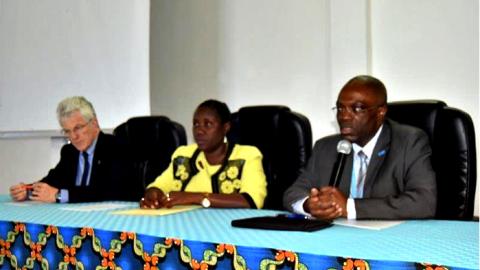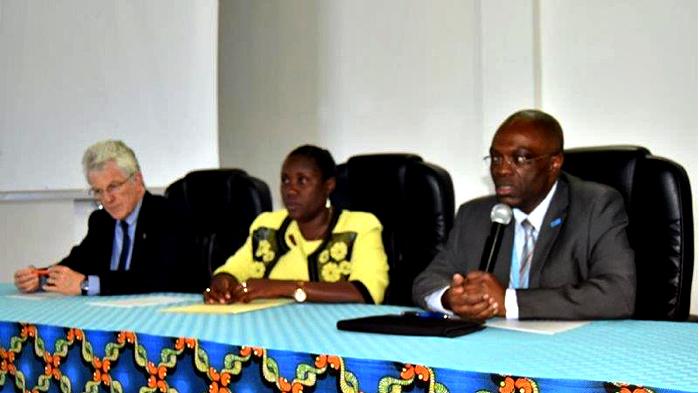
The multi-faceted crisis that engulfed Burundi in 2015 took a heavy toll on the country’s health system, jeopardizing progress on health systems resilience that had been patiently reinforced over the previous decade. It also led to the withdrawal of funding from the country’s major health sector donors.
The consequences of this were quickly noticeable in this country of ten million people: a sharp increase in vulnerability, worsening poverty, and a sudden jump in the proportion of the population in need to direct food aid (from 10% to 30% of the population in the space of one year). Especially affected was the resilience of the health system, and its ability to face natural disasters and acute health emergencies.
Flare-ups of malaria that had started to appear in 2014 quickly took epidemic-level proportions. Yet the interruption of sectoral dialogue further hindered the country’s ability to put together an appropriate public health response. In June 2016, the World Health Organization held a joint meeting with the Ministry of Public Health, within the frame of the EU-Luxembourg-WHO Universal Health Coverage Partnership (UHC Partnership). The goal was to relaunch sectoral dialogue, to adapt health policies and the country’s broader development orientations.
Critical at that moment was to draft a plan that would allow the government to manage the different stakeholders who would confront the crisis. The suggestion was accepted to extend the National Health Development Plan (NHDP) over two years, and a number of external partners repositioned themselves to fund the different axes of this transition plan.
Dr. Kazadi Mulombo Walter, WHO Representative in Burundi, explains that the UHC Partnership made it possible to align the sometimes-divergent voices of health sector stakeholders to allow the development of this new strategic framework. “It was difficult for the partners to talk to each other, but they absolutely needed to come up with a strategic framework from which the necessary investments could be made,” says Dr. Walter. “In developing this strategic plan, WHO was able to put in place something concrete: a transitional plan that extends to 2018.”
With the existing plan extended, WHO could revise its cooperation strategy with Burundi with an eye to 2018, taking into account the Ministry of Health’s Millennium Development Goals priorities now updated towards the new horizon of the Sustainable Development Goals.
“With the National Health Development Plan set to expire in 2015, coinciding with the ongoing sociopolitical crisis, it was important to put in place an interim strategic framework that would help to anchor humanitarian interventions”, explains Hamadou Nouhou, Health Systems and Policy Expert in Burundi under the UHC Partnership. “WHO very quickly suggested to the Ministry of Health that it develop a transitional rather than a new health plan.”
The UHC Partnership’s activities are moving apace in 2017, from monitoring the implementation of the current NHDP to supporting the development of the next plan which should come into effect in 2019.
“A priority area for 2017 for WHO in Burundi is to continue strengthening intra-sectoral dialogue, so that the conversations launched in 2016 can be consolidated in the development of the next PNDS”, says Dr. Alphonse Ciza, Programme Officer for Health Systems Strengthening at WHO. “The key activity will be analyzing current coordination frameworks, and existing stakeholders. Since the Health and Development Partner Framework (Cadre de Concertation des Partenaires pour la Santé et le Développement, CPSD) does not work well in the current political context, we need to analyze it in order to make it more operational.”
Lastly, the WHO Burundi team will profile health coverage at the national level, to obtain data on the current state of health of the population. By conducting an analysis of recent national health accounts as well as financial and human resources, the Ministry of Health will be able to lean on reliable data to develop a new national health plan in a timely and relevant manner.
“The work towards inter-sectoral dialogue and alignment of partners must continue, but we already sense a better coordination between health sectors partners at the national level”, concludes Dr. Kazadi.
